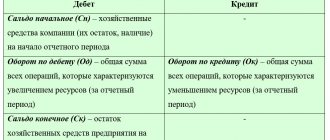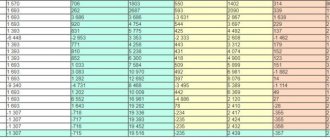Legal justification for the right to strike
The right to strike is enshrined in Article 37 of the Constitution of the Russian Federation. This is the highest source of law, and therefore all provisions of the Labor Code, various Federal Laws, regulations, internal acts of the enterprise must comply with it.
The legality of organized protests is considered in more detail by Article 407 of the Labor Code of the Russian Federation. Let's look at the basic rules:
- A strike is organized only when all attempts at reconciliation have been made to resolve the labor conflict, but the employer either evades reconciliation or does not fulfill the agreements that were established. Another option: a certain decision was made by labor arbitration regarding the head of the enterprise, but he does not comply with it.
- Before organizing a protest event, employees should familiarize themselves with the provisions of Article 413 of the Labor Code of the Russian Federation, which sets out various restrictions and circumstances that impede the implementation of a protest.
- Participation in the event must be entirely voluntary. It is strictly prohibited to force a worker to make a decision (positive or negative) regarding participation in a protest. If this happens, the person at fault is responsible.
- Representatives of the employer cannot take part in any way in the protest or its preparation. This rule is stipulated by Article 409 of the Labor Code of the Russian Federation.
The regulations that you need to familiarize yourself with before organizing an event are Articles 407 and 413 of the Labor Code of the Russian Federation.
Article 409 of the Labor Code of the Russian Federation. Right to strike (current version)
1. The legislator recognizes conciliation procedures as the main way to resolve a collective labor dispute. A strike as a means of resolving a collective labor dispute is allowed only in the event of an unsatisfactory outcome of conciliation procedures or failure by the employer (employers' representative) to comply with agreements reached in the conciliation commission or during mediation, as well as failure to comply with the decision of the labor arbitration.
The right to strike can be used in the course of resolving a collective labor dispute in order to force the employer to enter into an agreement that satisfies the demands of the workers. In practice, it is these strikes that make up the majority. A strike can also serve as a means of ensuring the implementation of agreements reached. However, despite the direct instructions of the Labor Code, such strikes are practically never held.
2. The right of workers to strike as a way to resolve a collective labor dispute is proclaimed by Art. 37 of the Constitution of the Russian Federation, which states: “The right to individual and collective labor disputes is recognized using the methods for resolving them established by federal law, including the right to strike.”
The constitutional formula for the right to strike is based on the provisions of international law and includes:
— recognition of a strike as a legal action of workers;
— ensuring the implementation of the right to strike by creating a system of state guarantees;
— recognition of a strike as one of the means of resolving collective labor disputes;
— placing the establishment of the legal regime of a strike within the competence of the federal legislator.
When characterizing the right to strike, it is necessary to emphasize the connection between collective actions of workers in defense of their rights and interests protected by law with the implementation of other collective labor rights.
The International Labor Organization (ILO) associates the right to strike with one of the fundamental rights of workers - the right to association, as well as the right to conduct collective bargaining and conclude agreements on working conditions.
The European Social Charter (as amended in 1996) explicitly links the right to strike to the collective bargaining process. Clause 4 art. Article 6 of the Charter provides for the right of workers (employees) and employers to collective action in the event of a conflict of interest, including the right to strike. The emergence of a conflict of interest is usually associated with collective negotiations on the conclusion of a collective agreement or agreement.
Article 37 of the Constitution of the Russian Federation, securing the right to individual and collective labor disputes, establishes that they are resolved using the methods provided for by federal legislation. Current federal legislation, in accordance with the requirements of international labor standards, provides for the possibility of using a strike only when resolving a collective labor dispute. The procedure for considering individual labor disputes established by Ch. 60 of the Labor Code does not imply strike actions.
It is important to emphasize that, at its core, the right to strike is a collective right granted to a trade union (association of trade unions) and the collective of employees of an organization (branch, representative office, other separate structural unit) or individual entrepreneur. The collective of employees of an organization (a separate structural unit, an individual entrepreneur) has the right to make a decision on declaring a strike, the timing and form of its conduct, duration, etc. (Article 410 of the Labor Code). A strike cannot be declared in any other manner or by other entities.
The strike historically arose and received recognition as a legal way to resolve labor conflicts precisely as a collective action. The collective nature of the termination (suspension) of the performance of labor duties forces the employer to continue conciliation procedures and take measures to resolve existing disagreements.
3. The legislator connects the possibility of using the right to strike with the presence of certain circumstances and conditions indicating the impossibility of resolving the dispute by other methods.
The right to strike is exercised in the manner prescribed by law (Articles 410 - 412 of the Labor Code) subject to certain conditions, the most important of which is the preliminary conduct of conciliation procedures.
The position of the Russian legislator, which prescribes the creation of voluntary conciliation bodies before declaring a strike, making a collegial decision to declare a strike, maintaining public order and ensuring the safety of the employer’s property, is fully consistent with the prevailing ILO ideas about the proper implementation of the right to strike. In particular, the Committee on Freedom of Association considers the following conditions for organizing and conducting a strike to be justified:
— establishing the obligation of prior warning of a strike;
— the obligation to conduct preliminary conciliation procedures;
— the presence of a quorum and the decision to declare a strike by a qualified majority;
— the obligation to decide on a strike by secret ballot;
— taking measures to ensure safety and prevent accidents;
— ensuring the implementation of the minimum necessary work (services) in cases of a strike in vital sectors (services);
— ensuring freedom of choice for workers who do not want to participate in a strike (Freedom of association: Digest of decisions and principles of the Freedom of Association Committee of the Governing Body of the ILO. Fourth (revised) edition. Geneva, 1996. P. 500 — 504, 506 - 513, 554 - 558, 586).
4. The right to strike presupposes the possibility (right):
- freely decide to go on strike;
- freely decide on the form and duration of the strike and the demands put forward to the employer;
— carry out a strike without hindrance (while ensuring public order and without violating the rights of third parties);
- suspend or terminate the strike by decision of the body leading it;
- enjoy the guarantees provided for by law (saving jobs for striking workers; prohibiting a lockout; prohibiting disciplinary action against workers participating in a strike).
5. The right to declare a strike belongs to the collective of workers, but there is also an individual aspect - the right of each employee to voluntarily decide on participation or non-participation in a strike.
Coercion to participate or refuse to participate in a strike is not permitted. In accordance with Art. 5.40 of the Code of Administrative Offenses, such actions carried out through violence or threats of violence, or using the dependent position of the coerced, entail the imposition of an administrative fine: on citizens in the amount of 500 to 1000 rubles; for officials - from 1000 to 2000 rubles.
6. The law does not provide for forms and procedures for conducting a strike. Should striking workers be at their workplaces, at home, or gather in the building (on the territory) of the organization; whether the body leading the strike should be permanently located in the organization and other issues relating to the procedure for exercising the right to strike have not been resolved by law. This means that workers are given a certain freedom of choice: depending on specific circumstances and conditions, they have the right to independently determine the nature of strike actions and the procedure for their implementation.
In practice, two main forms of strike have developed: industrial (when strikers spend most of their time in the production and administrative premises of the organization) and home (when strikers meet in the morning every day, receive the necessary information from the body leading the strike, discuss necessary issues and go home) .
7. Representatives of employers (heads of organizations, other officials authorized in accordance with the charter, other legal acts) do not have the right to take part in organizing and conducting a strike.
This requirement was introduced in connection with the widespread “director’s” strikes. These strikes were actually organized by the head of the enterprise or on his direct instructions to solve problems usually associated with the interaction of this enterprise with government authorities.
The “director’s” strike, formally carried out in defense of the labor rights or interests of workers, was essentially addressed to executive authorities, which were called upon to pay off debt on government orders, provide financial assistance to the enterprise, help solve social problems of workers, etc. This is a kind of indirect way of putting pressure on the state in the interests of the parties to labor relations, who are united in this situation.
Due to the fact that the law recognizes the right to strike only in the event of a collective labor dispute between workers and the employer (employers), a special clause was introduced prohibiting the unfair use of this method of collective protection.
Comment source:
Rep. ed. Yu.P. Orlovsky “COMMENTARY ON THE LABOR CODE OF THE RUSSIAN FEDERATION”, 6th edition ACTUALIZATION
ORLOVSKY Y.P., CHIKANOVA L.A., NURTDINOVA A.F., KORSHUNOVA T.YU., SEREGINA L.V., GAVRILINA A.K., BOCHARNIKOVA M.A., VINOGRADOVA Z.D., 2014
Strike procedure
When organizing a protest event, you must adhere to the following order:
- The decision to hold an event is made by a meeting of company employees. It is preceded by a corresponding initiative of a representative meeting of workers, which was engaged in resolving the conflict that arose. If the initiative to hold a strike was taken by a trade union, each meeting of workers approves the decision separately. There are requirements for the meeting: at least 2/3 of the total number of workers in the company must take part in it. The decision to hold the event in question is lawful if at least 50% of the employees present at the meeting vote for it. If it is not possible to hold it, the representative body of workers approves the decision based on the signatures of 50% or more of the workers in support of the protest event.
- After 5 days of work of the representative meeting to resolve the conflict, it is allowed to declare a warning strike. Requirements for it: duration no more than an hour, notification of the event must be sent to the employer no less than 3 days before it takes place.
- The employer must be notified of a major strike 10 days in advance. This requires written notice.
- The employer must notify the Labor Conflict Resolution Service about the start of the event (this need is established by Article 410 of the Labor Code of the Russian Federation).
Only after completing all the steps under consideration can you proceed directly to the strike.
Contents of the decision to declare a strike
In the decision to declare a protest event, you need to indicate some information:
- Those circumstances that became the basis for the protest.
- Start date and time of the event.
- Its duration.
- Expected number of strikers.
- The name of the body that is leading the event.
- List of workers' representatives to whom responsibility for participation in reconciliation has been transferred.
- The minimum amount of work that workers agree to perform during the strike.
A copy of the decision is sent to the employer.
Strike decision
Labor law allows a decision on a strike to be made at a meeting of employees of an enterprise at the proposal of their representative body, which was previously elected to resolve collective disputes at work.
The decision on the participation of employees in a strike, which is declared by a trade union, is made at a meeting of the organization's employees without a conciliation process.
Such a meeting of employees is legal if 50% of the total number of the entire team is present. The employer must provide the team with premises for holding meetings and cannot interfere with the meeting.
A decision can be considered adopted if half of the employees present at the meeting vote for it. If the meeting cannot be held, then the authorized body can approve its decision by collecting signatures in support of the strike.
A conciliation commission must work for five days, which can announce a preliminary strike in writing no later than three days before its start.
The employer must be notified in writing ten days in advance of the start of a strike.
What kind of strike will be considered legal?
An event is recognized as legal only when it meets the following standards:
- A preliminary attempt at reconciliation was made, but the employer ignored it.
- The decision to carry out the event was made by the meeting, and they managed to get a sufficient number of votes for the strike.
- The employer received timely notification of the event.
- All workers participated in the protest voluntarily; there was no pressure factor.
These are the main signs of the legitimacy of the event.
Article TCRF 413. Illegal strikes
Commentary on Article 413
1. The Constitution of the Russian Federation establishes a provision according to which the rights and freedoms of man and citizen can be limited by federal law only to the extent necessary in order to protect the foundations of the constitutional system, morality, health, rights and legitimate interests of other persons, ensuring national defense and state security (Article 55).
At the same time, the Constitution of the Russian Federation, recognizing the right to strike, enshrines the principle according to which fundamental rights and freedoms should not be interpreted as a denial or derogation of other generally recognized rights and freedoms of man and citizen (Article 17).
2. In accordance with Art. 55 of the Constitution of the Russian Federation, the Code lists cases when strikes are illegal and are not allowed.
3. Strikes by employees of any organizations are not allowed during periods of martial law or a state of emergency.
Federal Constitutional Law of May 30, 2001 N 3-FKZ “On a State of Emergency” in Art. 11 provides that for the period of a state of emergency, as one of the temporary restrictions, a prohibition of strikes and other methods of suspending or terminating the activities of organizations, as well as a prohibition or restriction of meetings, rallies and demonstrations, processions and pickets may be introduced. These restrictions are provided for by the Decree of the President of the Russian Federation on the introduction of a state of emergency.
If in this situation a collective labor dispute arises (or a dispute that arose before the introduction of a state of emergency continues), then its resolution should be postponed or the dispute should be resolved at any stage other than a strike.
4. The ban on strikes also applies to employees of a number of organizations, which include:
— bodies and organizations of the Armed Forces of the Russian Federation;
- other military, paramilitary and other formations and organizations (branches, representative offices or other separate structural units) directly responsible for ensuring the country’s defense, state security, emergency rescue, search and rescue, fire fighting, prevention or liquidation of natural disasters and emergency situations ;
— law enforcement agencies;
— organizations (branches, representative offices or other separate structural units) directly servicing particularly hazardous types of production or equipment;
— ambulance and emergency medical aid stations.
A wide range of conditions named in Art. 413 of the Labor Code (threat to the defense of the country and the security of the state, the life and health of people), means that the very fact of including these organizations in this list is already an unambiguous ban for workers of these organizations to hold strikes under any conditions.
5. In Art. 413 of the Labor Code also lists organizations (branches, representative offices or other separate structural units) directly related to ensuring the livelihoods of the population (energy supply, heating and heat supply, water supply, gas supply, aviation, railway and water transport, communications, hospitals), whose employees are prohibited from holding strikes not categorically, but in cases where it poses a threat to the defense of the country and the security of the state, the life and health of people.
This means that in each specific case, when deciding on a strike in such organizations, the entire complex of relationships and interdependencies accompanying this stage of a collective labor dispute should be clarified. In this case, two conditions must coincide: the organizations must be included in the specified list, and holding a strike poses a threat to the defense of the country, state security, and the life and health of people.
6. The right to strike may be limited by federal law. A number of federal laws introduce certain restrictions on strikes for citizens (workers) whose labor is subject to regulation by these laws. Such restrictions are established, for example, for civil servants; municipal employees; aviation personnel of civil aviation providing air traffic services (control); Federal courier communications employees; workers of nuclear installations and storage facilities; police officers; military personnel; employees of federal government communications and information agencies; workers of professional emergency rescue services, professional emergency rescue teams.
7. The restrictions established by law do not mean that employees of the organizations listed above do not have the opportunity to protect their rights within the framework of a collective dispute that has arisen. They may use other methods to resolve it. Thus, in addition to participating in conciliation procedures, they have the right to appeal to the Government of the Russian Federation.
8. The commented article defines the conditions under which a strike is illegal: violation of the deadlines, procedures and requirements provided for by the Labor Code.
As stated in the Resolution of the Plenum of the Supreme Court of the Russian Federation dated March 17, 2004 N 2 (clause 59), based on the provisions of Part 3 of Art. 17, part 3 art. 55 of the Constitution of the Russian Federation, as well as Part 3 of Art. 413 of the Labor Code, a strike, the right to which is guaranteed by the Constitution of the Russian Federation (Part 4 of Article 37), may be declared illegal if during the trial it is established that there were restrictions on the exercise of the right to strike established by federal law. This kind of violation can occur in cases where, for example, a strike was carried out in violation of Part 1 of Art. 413 of the Labor Code, which provides for cases when it is not allowed, or it was declared in violation of the terms, procedures and requirements established by the Labor Code, in particular, if conciliation procedures were not carried out before the strike was declared (see Art. 401 - 404 of the Labor Code and commentary on them); the decision to hold a strike was made in the absence of the required quorum (see Part 3 of Article 410 and the commentary thereto); either less than half of the workers present at the meeting (conference) voted for this decision, or for its approval (if it is impossible to hold a meeting or convene a conference), the representative body of workers collected an insufficient number of signatures of workers (see Part 5 of Article 410 and the commentary thereto) ); the minimum necessary work (services) performed during the strike by employees of organizations (branches, representative offices or other separate structural units), individual entrepreneurs whose activities are related to the safety of people, ensuring their health and vital interests of society was not provided (see Part Part 3 - 8 of Article 412 of the Labor Code and commentary thereto); the employer was not notified in writing within the prescribed period (about the start of the upcoming strike) no later than 10 calendar days (see Part 8 of Article 410 of the Labor Code and the commentary thereto).
9. The Labor Code also determines the level of courts that have the right to declare a strike illegal; a list of persons at whose request the courts consider such cases; the procedure for communicating the court decision to employees; responsibilities arising in this case for the body leading the strike; the procedure for executing a court decision declaring a strike illegal.
Cases on declaring strikes illegal fall within the competence of the supreme courts of republics, regional courts, courts of federal cities, courts of autonomous regions and autonomous districts. They are considered in the manner of claim proceedings at the request of the employer or prosecutor, who defends the rights of citizens and legally protected interests of society or the state (clause 3 of article 35 of the Law of the Russian Federation of January 17, 1992 (as amended and supplemented) N 2202 -1 “On the Prosecutor’s Office of the Russian Federation”).
10. A court decision declaring a strike illegal, which has entered into legal force, is subject to immediate execution. This decision is communicated to workers through the body leading the strike. Workers are obliged to stop the strike and begin work no later than the next day after delivery of a copy of such a court decision to their representative body leading the strike.
11. If the court declares a strike illegal due to violation by workers and their representatives of the procedure for its conduct, the latter are not deprived of the opportunity to exercise their right to strike by eliminating the violations committed.
12. A court decision declaring a strike illegal can be appealed in the manner prescribed by the Code of Civil Procedure.
13. The Labor Code provides for cases when a strike that has not started can be postponed, but one that has started can be suspended, and names the government bodies whose competence includes resolving these issues (court, Government of the Russian Federation).
Comments to the Labor Code of the Russian Federation
Publishing House "Gorodets", 2007
Source: SPS Consultant
Which strike will be considered illegal?
A protest event is considered illegal if the following circumstances exist:
- The duration of the strike has not been announced, and the requirements for the event have not been taken into account.
- The event poses a threat to the Constitution and the health of citizens (according to Article 55 of the Constitution of the Russian Federation).
- Workers do not perform the minimum work prescribed in the decision.
Protests are not recognized as legal:
- During martial law or emergency.
- In armed structures and other military associations.
- In the structures responsible for defense, its security.
- In rescue and fire-fighting organizations.
- In structures responsible for actions during natural disasters and emergencies.
- In law enforcement agencies.
- In companies engaged in servicing hazardous forms of production.
- In the ambulance.
- In structures that ensure people’s livelihoods (for example, heating, gas supply companies, clinics).
That is, cessation of activity is not allowed when it poses a threat to the life and health of people. The above list is set out in Article 413 of the Labor Code of the Russian Federation.
IMPORTANT! The manager does not have the right to prohibit protest events by internal acts of the enterprise. In this case, they will contradict the Constitution. Most likely, the court will side with the workers.
FOR YOUR INFORMATION! All the bans on strikes contained in the Labor Code of the Russian Federation can hardly be called absolute. This is due to the fact that they contradict the Constitution, the highest source of power. According to its provisions, any person has the right to protest.
Consequences of declaring a strike illegal
Only the courts can declare an event unlawful. Once a resolution is issued declaring a protest unlawful, it must be terminated immediately. Workers undertake to begin work no later than the next day after receiving a copy of the court decision. If employees continue to strike, they will be subject to disciplinary action. A representative body that does not stop the strike must compensate for all losses of the enterprise.
Article 415 of the Labor Code of the Russian Federation contains a ban on lockout. This is the dismissal of workers because of their participation in an event held according to all the rules. If a manager fires an employee for this reason, this entails an administrative penalty: a fine of 4,000-5,000 rubles (according to Article 5.34 of the Code of Administrative Offenses of the Russian Federation).
Persons who forced employees to participate or not to participate in a strike are also responsible:
- A fine of 500-1000 rubles. for citizens.
- 1000-2000 rubles for officials.
These forms of liability are stipulated in Article 5.40 of the Code of Administrative Offenses of the Russian Federation. Fines are paid exclusively by court decision.
Is it legal to go on strike in Russia?
Labor conflicts are often difficult to resolve. And in Russia, resolving disputes between employer and worker is complicated by state laws. Protests in the workplace are strictly regulated, and after amendments to the Labor Code in 2005, workers' rights to strike were greatly curtailed.
If you act according to the law, you must first hold a meeting at which at least half of the enterprise’s employees must be present. The employer, in turn, is obliged to provide premises for this and create the necessary conditions for holding the meeting. And if, say, the workers managed to agree on a strike, the employer must be warned about this in writing no later than ten days in advance.
The strike must take place no later than two months from the date of the decision to declare a strike, the Labor Code states. And the employer, upon learning that his employees are going to go on strike, is obliged to warn the relevant state body for the settlement of collective labor disputes about the upcoming strike. According to experts, the duration of all mandatory preliminary procedures is at least 42 days.
If a strike was declared without taking into account the deadlines, procedures and requirements, then it is invalid and must end after a court decision. Workers who are dissatisfied with working conditions are required to begin work no later than the next day after they are given a copy of the said resolution.
Strikes are prohibited in organizations directly related to the livelihoods of the population. That is, employees in the energy supply, heating, heat supply, water supply and gas supply sectors have no right to interrupt their work. The same list includes other professions: pilots, railway workers, signalmen, doctors and teachers do not have the right to strike. It is not surprising that Rosstat has not registered a single strike in a year and a half.
Not a single strike took place in 2010, according to the state statistics service, and in 2009 there was only one. Due to the fact that the research results are apparently not very correct, independent organizations themselves keep statistics on strike actions.
In reality, employees of organizations, of course, go on strike. True, activists of independent trade unions have to pay for this in administrative matters. Sometimes, “to be on the safe side,” employers even directly prohibit their employees from organizing trade unions within the enterprise. But more often it happens that the past strikes, in essence, do not change anything.
In 2007, the Samara alternative trade union of Avtovaz demanded that the company’s management increase wages from 7 thousand to 25 thousand rubles per month. Then representatives of the Federation of Independent Trade Unions of Russia did not support the strikers and stated that a strike cannot be carried out when “the enterprise is undergoing large-scale reforms and the demand for its products is decreasing.” And AvtoVAZ management called the strike an attempt at political destabilization on the eve of the elections.
At the end of 2007, a strike occurred in the city of Vsevolozhsk, Leningrad Region. The assembly line workers, whose wages range from 21 to 25 thousand rubles, demanded an increase in wages by another 30% and thus wanted to receive 30-33 thousand rubles. At that time, the plant employees fought with employers very skillfully - the trade union made it clear that the cars assembled during the strike would be of poor quality, since half of the quality control employees did not go to work. Moreover, Ford workers promised management that the VIN numbers of cars collected during the strike would soon appear on the Internet so that future owners would have the opportunity to refuse the cars. True, the workers never carried out this threat.
In 2010, a wave of air traffic controller strikes took place across Russian regions. They came up with a set of demands, the main one of which was the removal from office of the General Director of the Federal State Unitary Enterprise "State ATM Corporation in the Russian Federation" Viktor Gorbenko. It was he who was accused of the fact that air traffic controllers have accumulated a lot of problems related to retraining, advanced training and remuneration depending on the class of controllers. Starting from Rostov-on-Don, dispatchers went on strike in many Russian cities: Nalchik, Stavropol, Nizhnevartovsk, Novosibirsk and others. Later, the protests stopped, and Gorbenko remained in his post.
On May 14, 2010, in Mezhdurechensk, workers of the Raspadskaya mine went on strike in the central square, where miners and rescuers were killed in explosions. They complained about low wages, high injury rates and owner negligence. After the general director of the Raspadskaya mine did not come to meet them, the miners blocked the railway. By the way, the authorities responded to this promptly. Since July 2010, a law has been passed prohibiting strikers from blocking roads.
Since last year, for failure to comply with the requirements “to ensure transport security”, a fine has been imposed on citizens - from 3 thousand to 5 thousand rubles.
Russian citizens have a cool attitude towards collective protests. Students primarily support the strikes. Thus, in 2010, according to the Levada Center, only 16 percent of respondents believed that a strike was the only way to achieve satisfaction of their demands. Most often, the unemployed (34 percent), students (30 percent), specialists (19 percent), Russians under 25 years of age (24 percent), with secondary education (19 percent), talk about a strike as the only way to achieve satisfaction of their demands. low income (24 percent), living in rural areas (21 percent) and provincial cities with a population of more than 500 thousand people (18 percent). The opinion that nothing can be achieved by a strike is most typical among specialists and office workers. Residents of Moscow are the most vocal about the inadmissibility of strikes.
However, not everything in Russia is so bad with protests. Employers here, unlike Germany and some other countries in Northern and Central Europe, do not have the right to fire employees for going on strike.
Deputy Director of the Institute for Management of Social Processes at the Higher School of Economics, Irina Kozina, in her study “Strikes in Modern Russia,” argues that since 2005, workers “not with the lowest wages, but working in good conditions in successful enterprises,” have been on strike in the country. In this regard, Kozina notes the emergence of “offensive” strikes, in contrast to the “defensive” ones that took place in the early 90s.
“Demands for higher wages are coming to the fore, aimed at redistributing increasing income in favor of hired workers,” writes Kozina. In her opinion, the level of conflict is (other things being equal) an indicator of social tension in an enterprise, in a region, in society. The study also notes that strikes are a fairly effective way to force the formation of more favorable terms of labor contracts.
“The more strikes are legal, the more people perceive this as an ordinary way of fighting for their rights and recognize themselves as citizens who unite to defend their rights in a civilized manner,” writes Kozina.
How to organize a strike correctly
Step-by-step instruction
A strike is sometimes the only way to achieve “mutual understanding” with management that ignores the wishes of its employees.
According to the Labor Code (hereinafter referred to as the Labor Code), the reason for this action may be delay or non-payment of wages, irregular working hours, failure to provide vacation, etc.
Striking workers
The employer does not have the right to refuse negotiations with the organizers of the strike.
You will need:
- general meeting of the team;
- written requirements to the employer;
- creation of a conciliation commission;
- protocol of disagreements;
- written notification to the employer.
Instructions
1 — The right to strike is enshrined in Article 37 of the Constitution of the Russian Federation as a legal means of protecting one’s rights and interests. Moreover, Art. 415 of the Labor Code says that the dismissal of workers participating in this collective labor dispute is illegal. It is also illegal to force management to abandon a strike. Moreover, the enterprise administration is obliged to provide strikers with a special room for holding meetings.
2 — But before organizing a strike, hold a general meeting of employees and formulate demands on the enterprise administration. Your claims must be clear and specific. For example, increase labor safety, index wages, etc.
3 — Put your demands in writing to the employer so that they have legal force. Wait for his response. He must respond to you within three days.
4 — If you refuse to make concessions, organize a conciliation commission of representatives of the employer and employees. She must resolve all your differences within five days. If reconciliation fails, a special mediator from the Ministry of Labor will settle collective disputes. In the event that he is also unable to do this, a so-called protocol of disagreements is signed between the warring parties. Labor arbitration is also involved in resolving the conflict.
5 — If the conflict is not resolved, hold a general meeting of the team and announce the long-awaited strike. At least half of those present must vote for it. Record all information about the meeting in the minutes.
6 — 10 days before the strike, notify the employer about the strike in writing. State the date and time of the strike, the expected number of participants and duration. By the way, the law does not determine how many people can take part in a strike. This could be the entire team, or one service or department.
note
Pay attention to all the legal subtleties of organizing a strike, otherwise it may be declared illegal and the strikers will lose their jobs.
Useful tips
Please also note that not all categories of employees are allowed to go on strike. They are prohibited for the military, law enforcement officers and the FSB, emergency doctors, that is, those persons whose work is related to the safety of people, the protection of their health and the vital interests of society.
Here is what the law enforcement officers themselves explain about this:
The Leningrad Region Prosecutor's Office explained to workers and employers how to go on strike correctly. The supervisory agency has published instructions for potential strikers on its website. The publication talks about when you need to warn your employer about a protest. It is also about how the decision to go on strike is made. Activists were also reminded of the existence of penalties for illegal strikes. The prosecutor's office chose not to name specific sanctions:
In accordance with Article 37 of the Constitution of the Russian Federation, the right of workers to strike is recognized as a way to resolve a collective labor dispute.
Participation in the strike is voluntary. No one can be forced to participate or refuse to participate in a strike.
Persons who force workers to participate or refuse to participate in a strike bear disciplinary, administrative, and criminal liability...
Representatives of the employer do not have the right to organize a strike or take part in it.
According to Art. 410 of the Labor Code of the Russian Federation, the decision to declare a strike is made by a meeting (conference) of workers of an organization (branch, representative office or other separate structural unit), individual entrepreneur at the proposal of the representative body of workers, previously authorized by them to resolve a collective labor dispute.
The decision on the participation of employees of a given employer in a strike declared by a trade union (association of trade unions) is made by a meeting (conference) of employees of a given employer without conducting conciliation procedures.
A meeting of employees of a given employer is considered valid if more than half of the total number of employees is present. A conference of employees of a given employer is considered valid if at least two-thirds of the conference delegates are present.
The employer is obliged to provide premises and create the necessary conditions for holding a meeting (conference) of employees and has no right to interfere with its holding.
The decision is considered adopted if at least half of the employees present at the meeting (conference) vote for it. If it is impossible to hold a meeting (conference) of workers, the representative body of workers has the right to approve its decision by collecting the signatures of more than half of the workers in support of the strike.
The employer must be notified in writing of the start of the upcoming strike no later than five working days. The association of employers and other representatives of employers must be notified in writing of the start of a strike declared by a trade union (association of trade unions) no later than seven working days in advance.
According to Art. 413 of the Labor Code of the Russian Federation, the decision to declare a strike illegal is made by the supreme courts of the republics, regional, regional courts, courts of federal cities, courts of the autonomous region and autonomous districts at the request of the employer or prosecutor.
In accordance with Art. 417 of the Labor Code of the Russian Federation provides for disciplinary liability of workers for illegal strikes.
A representative body of workers that declared and did not stop a strike after it was declared illegal is obliged to compensate for losses caused to the employer by the illegal strike at its own expense in the amount determined by the court.
In addition, administrative liability is provided for the unauthorized termination of work or abandonment of a place of work as a means of resolving a collective or individual labor dispute by a person ensuring the safety of the relevant type of activity for the population, if such actions (inaction) are prohibited by federal law, as well as the organization of their actions (inaction). , provided for in Art. 20.26 Code of Administrative Offenses of the Russian Federation.
Let us add that for committing a disciplinary offense (failure or improper performance by an employee, through his fault, of the work duties assigned to him), the employer has the right to apply one of three disciplinary sanctions. This is a reprimand, reprimand and dismissal on appropriate grounds, according to Article 192 of the Labor Code of the Russian Federation. Fines under Article 20.26 of the Code of Administrative Offenses reach 2.5 thousand rubles.
Let us recall that the legal basis for the activities, functions and powers of the prosecutor’s office are enshrined in Federal Law No. 2202-1 of January 17, 1992.
Materials used from the sites: https://www.kakprosto.ru and https://www.kadis.ru/
If you find an error, please select a piece of text and press Ctrl+Enter.









